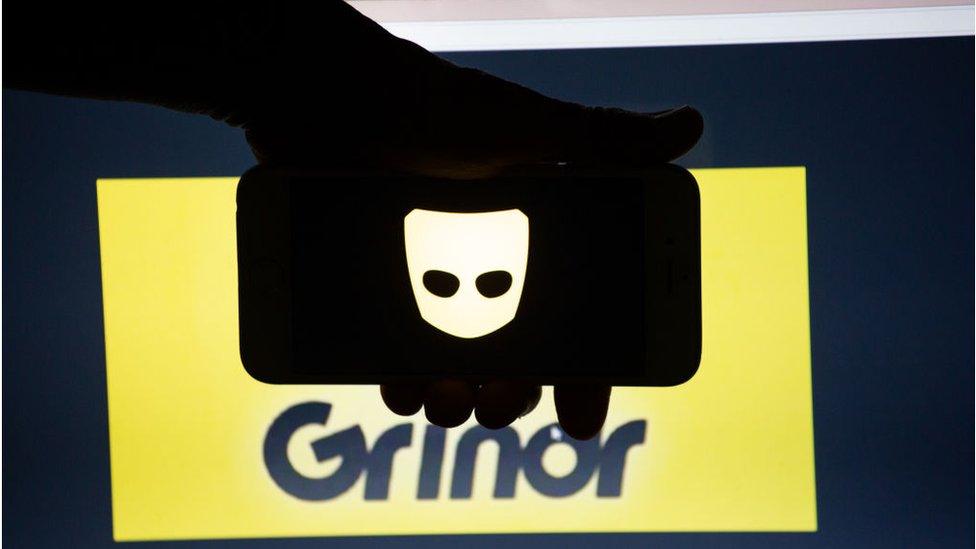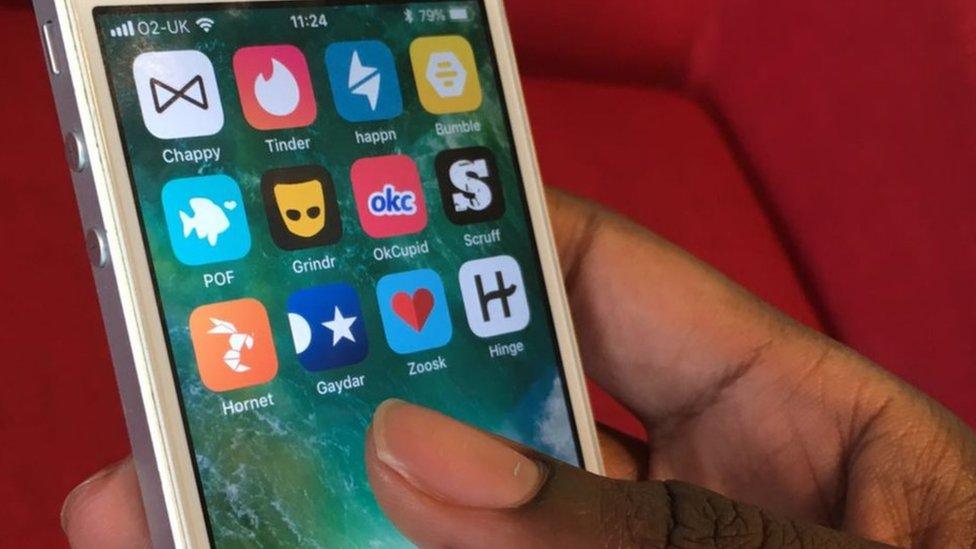Gay dating app Grindr to sell shares
- Published

Grindr's parent company has given approval for its IPO
Gay dating app Grindr is to list its shares on international stock exchanges, under a plan submitted by its Chinese parent company Kunlun Group.
Kunlun Group's board said that going public would "strengthen" Grindr's competitiveness and help the business continue to develop.
The Chinese tech firm originally bought a 61.5% stake in 2016 from the company's US founders.
It then took full control in January.
In a public filing on the Shenzhen stock exchange, Kunlun Group said that after the initial public offering (IPO) was completed, financing arrangements would be made to support Grindr's expansion.
Grindr, which is based in Los Angeles, is a hugely popular dating network for lesbian, gay, bisexual and transgender people, with over 27 million users globally as of 2017.
It is free to use, with optional subscription plans for additional premium features.
Grindr was the first gay social networking app on the iTunes App Store and is currently available in 192 countries, although its user base is primarily located in developed countries in Europe and North America.
The app was founded in March 2009 by Joel Simkhai, an Israeli immigrant to the US who grew up in Mamaroneck, in the state of New York.
Mr Simkhai originally created Grindr as a way to help people find others with similar interests using geolocation data, but it quickly gained popularity in the gay community through word of mouth and articles in the media.
In January 2016, Kunlun Group bought a 61.5% stake in Grindr for $93m (£71.4m), before purchasing the remaining shares in January this year for $152m.
When Kunlun Group took full control of the company, Mr Simkhai, Grindr's chief executive left the company.
Despite being owned by a Chinese firm, Grindr is not the number one gay dating app in China. That position is held by Beijing-based app Blued, which claims to have 40 million users worldwide.
According to research from US investment bank Piper Jaffray, the most popular dating apps used by straight single millennials are Tinder, Bumble and OKCupid.
- Published3 August 2018

- Published3 April 2018